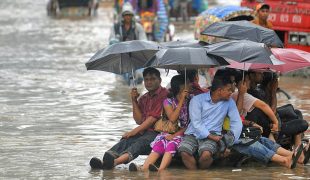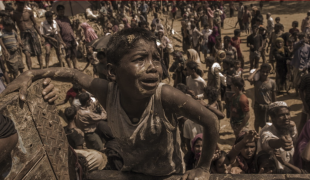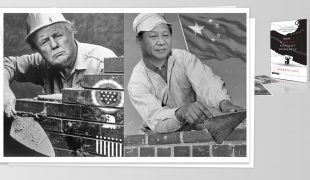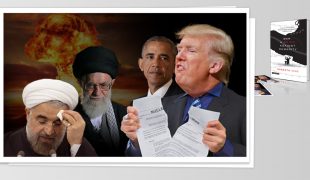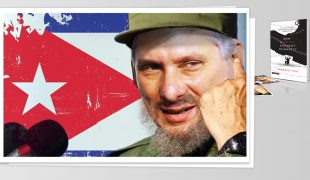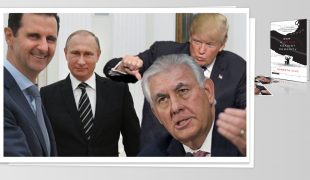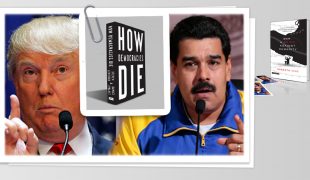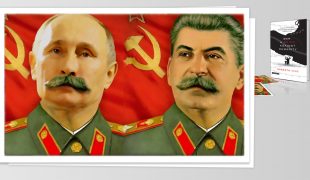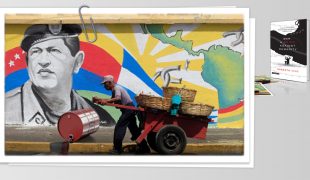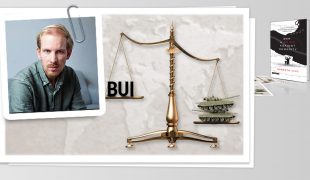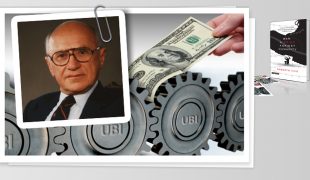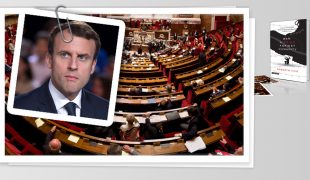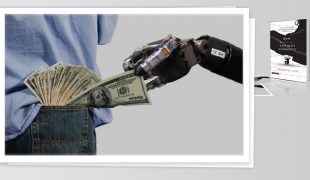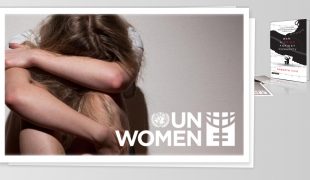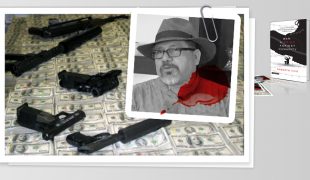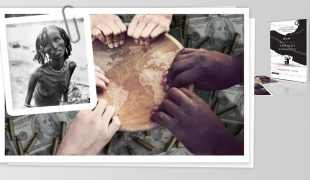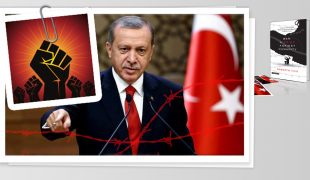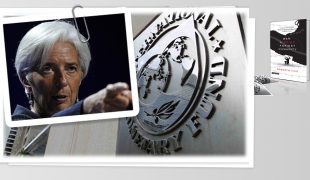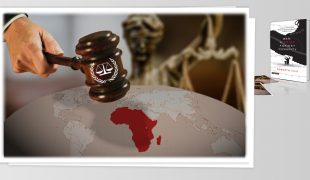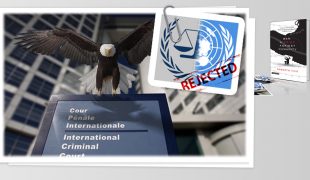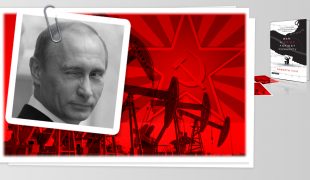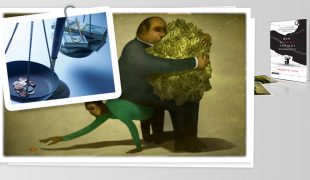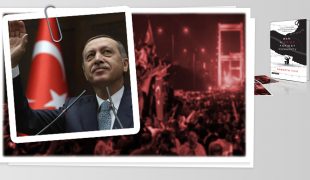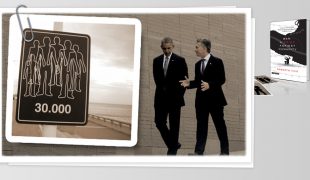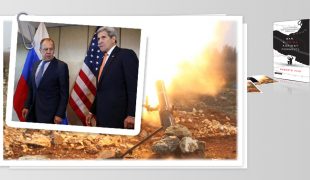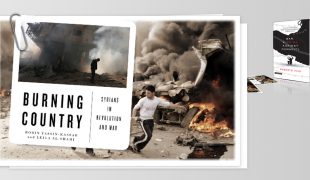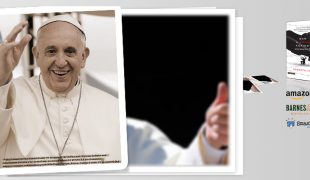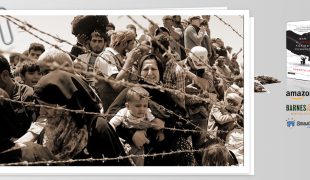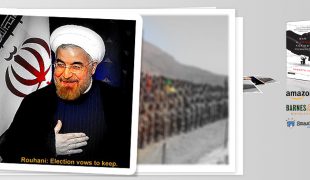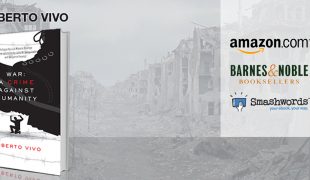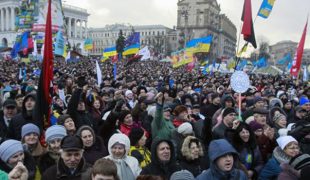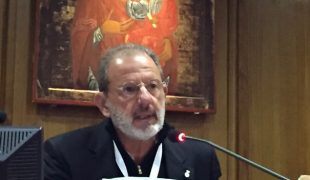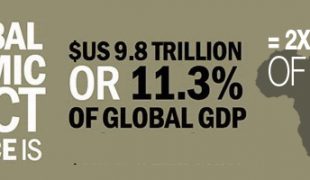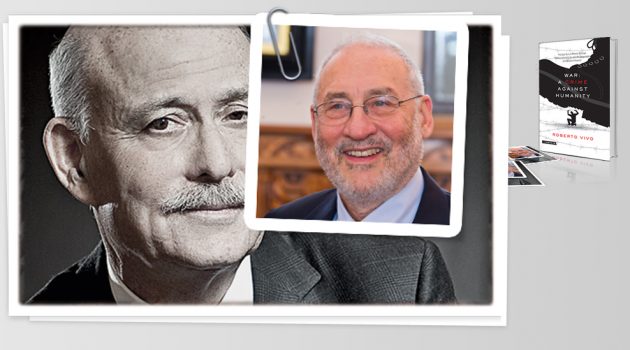
The Rise of Populist Nationalism: PART III — Root Causes
In a recently released documentary video written and directed by Kelly Nyks, Peter D. Hutchinson and Jared P. Scott for PF Films (http://requiemfortheamericandream.com/), the internationally esteemed dean of US intellectuals, Noam Chomsky, provides, like no one else to date, a clear, concise analysis of how the much-touted American dream has become an American nightmare for all but a privileged elite. And as goes the United States, so too goes the world, often with devastatingly multiplied effect. The failure of the majority of the public to understand the causes behind this dream’s demise and, worse still, their lack of tools for dealing with it, are at the root of the fears and frustrations currently fueling populist nationalism and the simplistic “solutions” that it preaches.
This finagling of democracy has been, Chomsky posits, a gradual process, but he shows too that what we are witnessing today is an ever sharper incline toward the pinnacle of concentration of wealth and power, a process that has vastly undermined the middle class and conspired to destroy the American Dream. He has narrowed these developments down into ten concise points designed to answer the question many are asking throughout the Western world: What happened to us and to our democracy?Chomsky’s hour-long documentary is fittingly titled Requiem for the American Dream and is the result of a careful synthesis of interviews that its creators carried out over the course of four years with the legendary octogenarian linguist, philosopher, cognitive scientist, historian, logician, social critic, and political activist. In it, Professor Chomsky provides a living demonstration of how minds capable of grasping the most complex of concepts are also often the ones best suited to simplify analysis, breaking it down into its primary colors. He walks the viewer succinctly through 250 years of history to explain how the estates of wealth and political power have colluded to ensure that there is never “too much democracy” and that the law tends, in the end, to serve the interests of the rich and powerful in detriment to the common man.
Although most often described as “America’s most famous ‘leftist’ intellectual”, it strikes me that, in terms of supposed American ideals—democracy, equality, social justice, and unwavering respect for human and civil rights—Professor Chomsky is, in fact, a conservative and one who knows what it is vital to conserve. Those founding ideals stand as sound and inalterable—as does Chomsky’s political stance. The drastic change is in how, while continuing to mouth the words of the creators of Western democracy, Western politicians and lawmakers, in cahoots with the estates of economic power, have managed to severely limit democracy and equality and transferred guarantees originally created for the individual to the very powers from the abuse of which they were originally designed to protect common citizens. Seen in this way, if Chomsky is not considered the conscience of American-style democracy, he clearly should be.
But Chomsky is not alone among top intellectuals in his analysis of the grave problems currently affecting Western democracies and capitalist economies because of imbalances that governance has failed to address—or, better said, has intentionally created.
A question that the Nobel laureate seeks to answer in that work is one plaguing many everyday confounded democrats throughout the US and the West as a whole today: How could the wealthiest one percent of the population have been so victorious in shaping overall governing policies in its interest? One very significant way that the super-wealthy have done this is, Stiglitz indicates, by making “political investments that have reaped large rewards—often greater than the returns they have reaped on their other investments.”Nobel Prize-winning economist and Columbia University professor Joseph Stiglitz unflinchingly paints the current situation in the West as so distinctly undemocratic as to be described as Orwellian. Indeed, in his 2013 best-seller, The Price of Inequality: How Today’s Divided Society Endangers Our Future (W.W. Norton & Company, Inc., New York), Stiglitz entitles his chapter six “1984 Is Upon Us”.
A high-profile example of this idea of “playing the system” is that of Donald Trump, the Republican Party’s billionaire candidate for US president in that country’s current election process. Trump has invested in a wide range of businesses, but his core business is high-end real estate. While it can be argued that he has made huge sums of money buying, selling and renting properties in prime urban areas, a recent New York Times investigation showed that he has also profited enormously by negotiating tax-cuts and subsidies through the highly influential political contacts that he has cultivated over the course of his checkered career (cuts totaling, at the very least, 887 million dollars in the New York area alone). And he himself has boasted publicly about making money off of his various bankruptcies, while paying as little tax as possible on his business and personal interests.
But why, one might ask, would the other 99 percent of the population let the one percent get away with this? More specifically, why has the democratic majority not been rioting in the streets and clamoring for full recognition of their right to equal representation and to a more equal share of the pie? Stiglitz believes, as do I, that it is because the wealthy have also invested both large sums of money and no little effort in convincing everyone else that the interests of the one percent and those of the other 99 percent are exactly the same. (Take, for instance, the famous “trickle-down” theory promoted by Reaganomics and by continuing admirers of the late Ronald Reagan’s distinctive brand of neo-conservatism ever since his two terms as president of the United States ended in 1989).
Says Stiglitz: “This strategy requires an impressive sleight of hand; in many respects the interests of the 1 percent and the 99 percent differ markedly.” He goes on to write that, “The fact that the 1 percent has so successfully shaped public perception testifies to the malleability of beliefs,” adding that “when others engage in it, we (Americans) call it ‘brainwashing’ and ‘propaganda’.” Again, Donald Trump provides a good example of this sort of “sleight of hand”. Despite ample public coverage of his previously mentioned tax breaks and quasi-tax evasion (he is currently under audit by US tax authorities), the fact that he is a classic example of the “one percent class” whose number one priority is the massive accumulation of wealth and political power, or the fact that he promises a protectionist policy that will supposedly punish businesses that send US jobs abroad, bring industry back home, promote US exports and levy heavy tariffs on cheap imports while his own manufactured products are being made in cheap-labor factories abroad, Trump’s staunchest supporters have been duped into seeing him as a straight-talking friend of the common man who has US labor’s best interests uppermost in his mind. They also naïvely see him as “the only one who can fix” a loaded and broken political and economic system, when it is precisely savvy tycoons like himself in complicity with ductile lawmakers, open to the whims of deep-pocketed lobbyists, who are at the core of the problem.
If the current perception in Western democracy of what Stiglitz describes as “disempowerment, disillusionment and disenfranchisement” is indeed palpable, it may also be said that, for many, it is just that: a perception, a feeling, with no deep understanding of what is going on or what to do about it. And the “spell” cast on the majority—that brainwashing and propaganda that Stiglitz mentions—makes many common citizens sorely suspicious of any sort of “revolutionary” thinker who seeks to shake them up and educate them as to the dangers posed to their rights and democracy by the unprecedented concentration of combined material wealth and political power. Such attempts at enlightenment are all too often shrugged off as “lunatic fringe conspiracy theories,” while pro-establishment “official stories” are taken as true beyond a shadow of a doubt.
Along these lines, Stiglitz writes: “It is clear that many, if not most, Americans possess a limited understanding of the nature of inequality in our society: They believe that there is less inequality than there is, they underestimate the adverse economic effects, they underestimate the ability of government to do anything about it, and they overestimate the costs of taking action.”
Stiglitz goes on to say that, “In a recent study, respondents on average thought that the top fifth of the population had just short of 60 percent of the wealth, when in truth that group holds 85 percent of the wealth.” The prize-winning economist says that, generally speaking, Americans accept that a certain amount of inequality is inevitable and even desirable in order to provide incentives for advancement. But he goes on to say that “the level of inequality in American society is unacceptable,” and adds that, in that same study, “…interestingly, respondents described the ideal wealth distribution as one in which the top 20 percent hold just over 30 percent of the wealth.”
Dashing the common misperception of the United States as the “land of milk and honey”, Professor Stiglitz proposes that Americans’ belief that the level of equality in their society is much greater than it actually is might exist because “when inequality is as large as it is in the United States, it becomes less noticeable—perhaps because people with different incomes and wealth don’t even mix.” But, bottom line, he posits, the one percent has used advances in communications and information technology to “alter perceptions and achieve its aims—to make our inequality seem less than it is and more acceptable than it should be.”
In this sense, those embracing the kind of populist nationalism proffered by Donald Trump are aware, at least, that the system is in trouble and are anxious to change it—by practically any means. They are just at a loss as to know how to go about it, and are, in the end, barking up the absolutely wrong tree in terms of finding a solution. Less democracy—greater autocracy—isn’t the solution. On the contrary.
But when the author wrote a new introduction to the book nearly a decade later in 2004, the jobless situation had not only not improved, but had gotten decidedly worse, despite global improvements in productivity and gross product levels. Already by 2001, Rifkin said, the ranks of the unemployed and underemployed had grown by 200 million to reach a total of a billion workers. Considering that the global workforce is roughly half the worldwide population, this means that, at the time Rifkin was revising his book, about one in three potential workers worldwide was unemployed or underemployed. And the downtrend is apparently intensifying, since, as computerization and robotics underlie progress in the post-industrial age, there is ever less demand for labor as we know it, while the worldwide population continues to grow by leaps and bounds. For instance, in 1960, the world population was only roughly 3 billion people. Today, less than 60 years later, it has reached well over double that total. Beyond and in combination with their nagging political concerns, however, average people worldwide are faced with another grave parallel social and existential concern: namely, the imminent loss of their livelihoods. In his groundbreaking 1995 book, The End of Work, world renowned economist and social theorist Jeremy Rifkin was already talking about the dichotomy of the Information Age, which, on the one hand, was ushering the world into an era of unimagined technological advancement, but on the other, was spelling the end of the need for human labor. Even back then, before the turn of the millennium, Rifkin raised concern that worldwide unemployment was at its highest level since the Great Depression of the 1930s, claiming that 800 million workers around the world were either unemployed or underemployed.
Just as Chomsky points out in Requiem for the American Dream, Rifkin indicates that one of the differences between the times of the Great Depression and the post-millennial, post-industrial job situation is that today offers little or no hope for improvement, while despite how stark the reality of the 1930s might have been, everything remained to be done in that time of industrial innovation, meaning that times for labor were bound to get better once the Stock Market crash had been absorbed.
How imminent a problem is burgeoning joblessness? According to a 2013 academic study entitled The Future of Employment, by Carl Benedikt Frey and Michael A. Osborne, which looks at the effects of computerization on the US labor market, nearly half (47%) of the job posts that currently exist in the United States alone are at risk of disappearing as technology advances.
All of these factors, then, have tended to baffle and overwhelm vast segments of the global population. The fact that capitalism and democracy are frequently amalgamated in the minds of Westerners makes it all the more confusing and has led to the devastating effects of these social and economic imbalances being perceived as “the failure of democracy” rather than as the distortion and bastardization of liberal capitalism. And this is a particularly patent in the youngest members of Western society. A recent study published in The Journal of Democracy shows that less than 30 percent of millennials (people who reached young adulthood around the turn of the millennium) believe that it is essentially important to live within a democratic society.
Like the purveyors of Nazism and fascism before them, the talking heads enrolled in the current rise of populist nationalism are taking advantage of this confusion not only to engage in fear-mongering but also to cash in on the outrage and vitriolic anger that it breeds as a means of gathering power and followers for their leader-candidates. And carried to extremes, these kinds of circumstances are precisely where democracies go to die.
In my next and final piece in this series, I will be looking at possible consequences and solutions.




